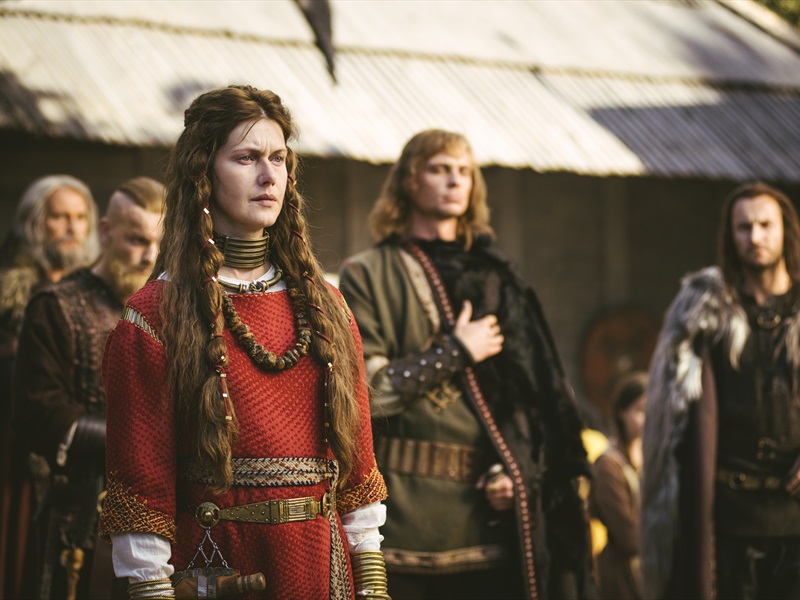A warrior’s destiny unfolds as he fights to protect his people and preserve their sacred traditions.
The Pagan King, released in 2018, is a Latvian historical drama that immerses audiences in the world of the 13th century Baltic tribes. Directed by Aigars Grauba, the film blends myth, folklore, and history, centering on a young warrior suddenly thrust into a position of leadership at a pivotal time for his people. It is both a sweeping epic of tribal conflict and a deeply personal tale of courage and destiny.
The story follows Namejs, a warrior who inherits the sacred Namejs Ring after the death of his predecessor, marking him as the rightful leader of his tribe. However, with this honor comes a crushing responsibility: to protect his people from both internal strife and the looming threat of Christian crusaders seeking to dominate and convert the region. The film portrays Namejs as a reluctant leader who must grow into his role while defending his people’s traditions and way of life.

One of the central conflicts of the film is cultural survival. The Baltic tribes are portrayed as fiercely independent, bound by ritual, spirituality, and their connection to the natural world. The foreign invaders, by contrast, embody the force of empire and religious conquest. This clash is dramatized not only in battles but also in the struggle over identity—whether to preserve ancestral beliefs or submit to a new order.
Visually, The Pagan King is striking, making use of Latvia’s forests, rivers, and landscapes to ground the story in an authentic environment. Battle sequences are gritty and intense, while the quieter moments capture the weight of ritual and tradition. The score enhances the sense of myth, weaving together a narrative that feels both historical and legendary.

Ultimately, the film is about leadership and sacrifice. Namejs learns that true strength is not found in brute force alone, but in the courage to fight for one’s people and beliefs against overwhelming odds. As the legend of the Namejs Ring suggests, his legacy endures beyond the battlefield, symbolizing resistance, unity, and freedom.
-1755584947-q80.webp)

-1755052812-q80.webp)
